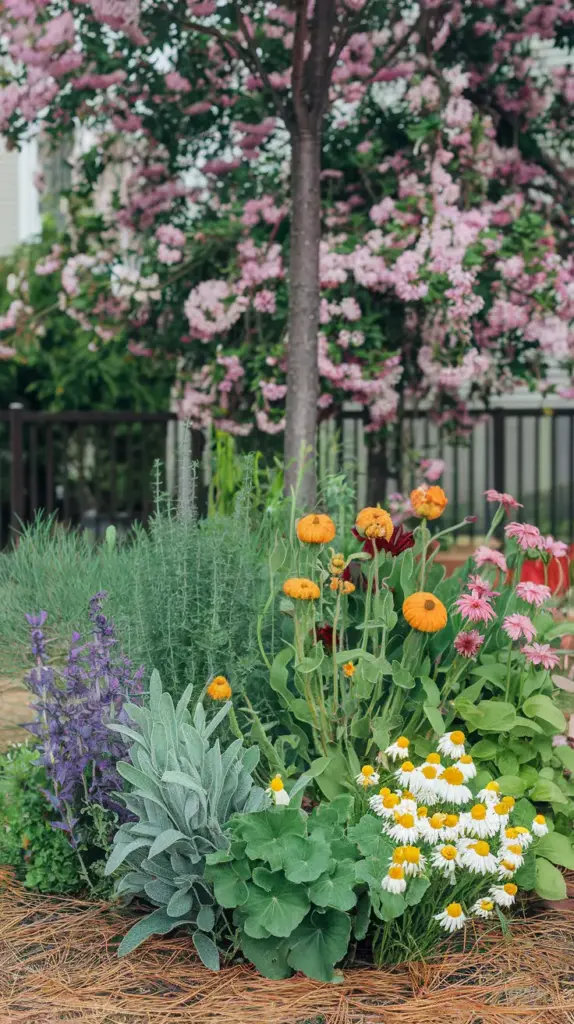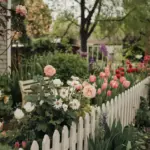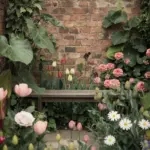10. The Edible Beauty Border: Where Function Meets Fashion

Let me tell you about my absolute favorite way to dress up those tree bases – creating an edible beauty border! After years of experimenting with different garden designs, I’ve discovered that combining ornamental and edible plants isn’t just practical – it’s downright gorgeous.
Choosing the Right Edible Ornamentals
When I first started my edible landscaping journey, I made the rookie mistake of cramming too many plants into the space. Less is definitely more when it comes to tree border design. I’ve found that starting with a backbone of perennial herbs creates a stunning foundation. My go-to combinations include purple sage, creeping thyme, and oregano. These herbs not only look fantastic but also release the most amazing aromatics when you brush past them while mowing.
The Magic of Edible Flowers
Here’s something that blew my mind when I first learned it – those gorgeous nasturtiums aren’t just pretty faces! They’re completely edible and add a peppery kick to salads. I’ve integrated them with calendula and borage, creating what I like to call my “salad border.” The key is to plant them in clusters of three to five for maximum visual impact.
Medicinal Beauties That Steal the Show
The game-changer in my edible border has been incorporating medicinal plants. Echinacea (purple coneflower) has become my absolute favorite. Not only does it provide stunning purple blooms that last for weeks, but it’s also a powerful immune system booster. I’ve paired it with lemon balm and chamomile, creating a beautiful therapeutic garden that doubles as a natural pharmacy.
Design Tips for Success
Here’s what I’ve learned the hard way about designing these borders:
- Always consider the mature size of plants – I once had chamomile completely overtake my border!
- Create layers of height with taller plants like echinacea at the back
- Include some evergreen herbs like rosemary for year-round structure
- Plan for succession blooming to maintain interest throughout seasons
- Leave enough space between plants for air circulation
The secret sauce to a successful edible beauty border is thinking about the visual rhythm. I alternate plants with different leaf textures and flower colors. For example, the silvery leaves of sage contrast beautifully with the deep green of parsley and the bright flowers of calendula.
Maintenance Made Simple
One thing I absolutely love about edible borders is how low-maintenance they can be. Most herbs actually prefer slightly stressed conditions – they develop stronger flavors and more concentrated essential oils when not overfed or overwatered. I’ve found that a layer of organic mulch helps retain moisture and suppress weeds, making maintenance a breeze.
Remember to harvest regularly – it actually encourages more growth! I make it a habit to trim my herbs every couple of weeks during the growing season. The more you harvest, the bushier and more beautiful they become. Plus, there’s nothing quite like stepping out to your tree border to snip fresh herbs for dinner or collect edible flowers for a salad.
Through trial and error, I’ve discovered that the key to a successful edible beauty border is balancing aesthetics with functionality. Don’t be afraid to experiment with different combinations until you find what works in your specific growing conditions. Your tree border can be both a feast for the eyes and your dinner table!
Conclusion
Creating these stunning flower gardens around trees isn’t just about beautification – it’s about bringing life, color, and personality to your outdoor space! Remember to consider your tree’s specific needs and your local climate when choosing your arrangement. Ready to transform those bare tree bases? Start with one of these designs and watch your garden become the talk of the neighborhood! Don’t forget to maintain proper mulching and watering practices to ensure both your trees and flowers thrive together in harmony.









GIPHY App Key not set. Please check settings